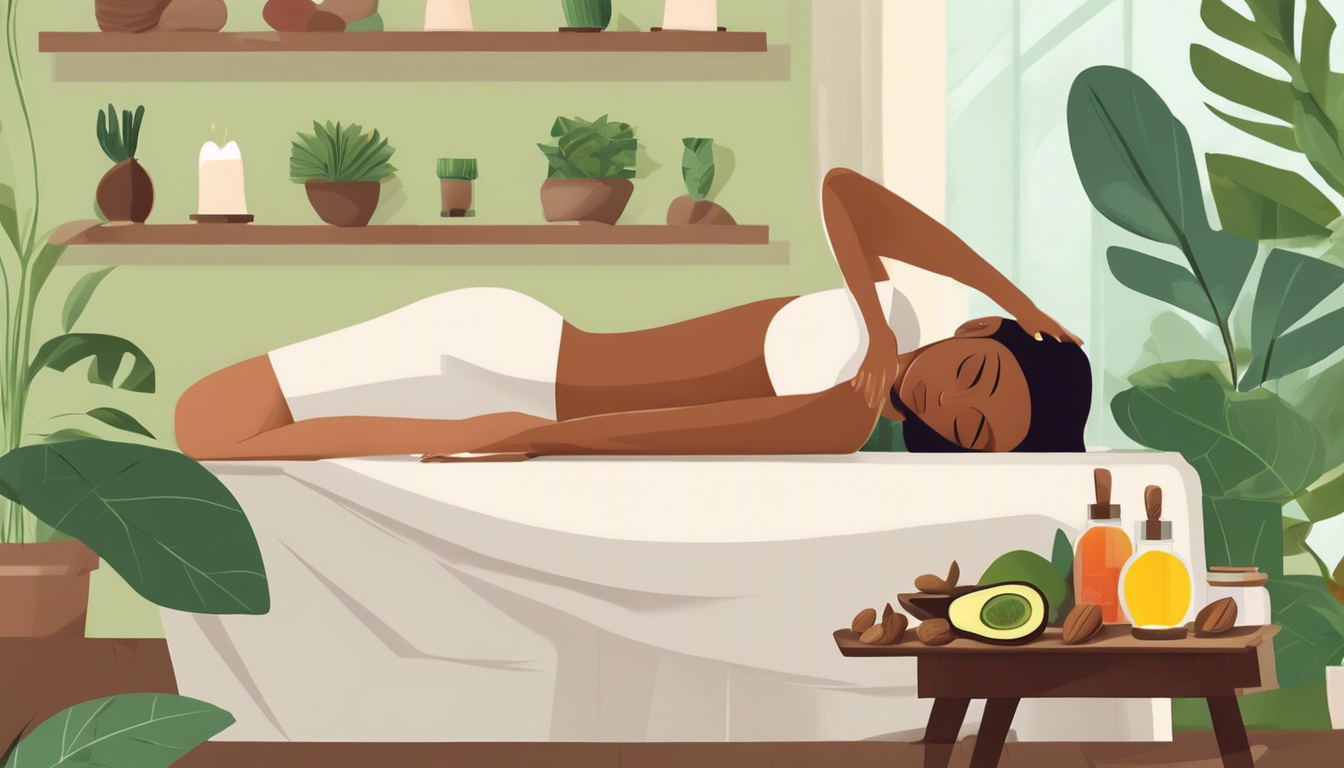If you’ve ever experienced hair thinning or loss, you know how this can affect your confidence and self-esteem.
For many, hair condition serves as a mirror reflecting overall body health.
This realization became profoundly clear to me during my postpartum journey, battling hair loss and navigating thyroid issues.
It was a wake-up call that motivated me to explore natural, holistic approaches to rejuvenating hair health.
This article delves into six natural ways to enhance your hair’s vitality, emphasizing the vital interplay of nutrition, stress management, and body health in achieving luscious locks.
Key Takeaways
- Adequate protein and essential nutrients are vital for healthy hair growth.
- Reducing stress can help prevent hair loss and improve overall hair health.
- A holistic approach that encompasses diet, stress management, and scalp care is key to achieving optimal hair condition.
The Importance of Nutrition for Healthy Hair
## The Importance of Nutrition for Healthy Hair
Achieving healthy hair is often a reflection of our overall health and well-being, making nutrition a central focus in promoting luscious locks.
Drawing from personal experiences with postpartum hair loss and thyroid issues, this article offers six natural ways to foster hair vitality.
It’s crucial to understand that the condition of our hair can mirror our dietary habits and stress levels, emphasizing the need for a holistic approach to hair care.
First and foremost, nutrition plays a vital role in hair growth.
A diet rich in protein is essential, as hair is primarily made of a protein called keratin.
Incorporating foods such as lean meats, fish, eggs, and bone broth into your meals provides the necessary building blocks for hair development while also supplying iron, which is crucial for oxygen transport in the blood and therefore for healthy hair follicles.
Next, attention must be given to essential nutrients that further support hair health.
Vitamin C is pivotal for producing collagen—a protein that strengthens hair strands—and enhances iron absorption, promoting robust hair growth.
To acquire this nutrient, include citrus fruits, broccoli, and bell peppers in your diet.
Biotin, part of the B vitamin family, is also instrumental in hair health.
This vital nutrient can be found in eggs, nuts, and berries, and is known for its role in stimulating hair growth.
Moreover, practices that prioritize stress management can significantly impact hair health.
Stress has been identified as a common culprit of hair loss; thus, engaging in relaxation techniques such as yoga, meditation, or leisurely walks can be beneficial.
Within the realm of hormonal balance, it’s worth noting that some types of hair shedding—especially postpartum—are closely linked to hormonal fluctuations.
Maintaining a healthy lifestyle is key to mitigating these hormonal effects and promoting resilience in hair growth.
Furthermore, scalp health plays an understated but critical role in hair vitality.
Nourishing the scalp with healthy fats and ensuring a balanced hormonal environment enhances hair growth while improving overall hair quality.
Foods rich in omega-3 fatty acids, like salmon and flaxseeds, can provide those essential fats needed for a healthy scalp.
Finally, adopting a holistic approach to health can create a beneficial loop; taking care of your body and your hair simultaneously fosters an environment where both can thrive.
Implementing nutritious practices into daily life not only supports a fuller head of hair but also contributes to overall wellness.
In summary, focusing on a nutritious diet laden with essential proteins and vitamins, combined with stress management strategies, can dramatically enhance hair health.
By recognizing the interconnectedness of our body’s systems, we can pave the way for healthier, stronger hair.
Managing Stress and Hormonal Balance for Optimal Hair Growth
In addition to nutrition and stress management, incorporating regular physical activity into your routine can significantly enhance hair health.
Exercise boosts blood circulation, which helps deliver essential nutrients and oxygen to hair follicles.
Furthermore, physical activity is known to help regulate hormones, reducing the impact of stress and hormonal fluctuations that can lead to hair shedding.
Engaging in moderate exercise such as brisk walking, cycling, or yoga can not only foster a strong body but also support a vibrant mane.
Moreover, hydration plays a crucial role; drinking ample water aids in maintaining moisture levels in the scalp and hair, preventing dryness and brittleness.
Ultimately, a commitment to an active lifestyle paired with proper hydration complements the other strategies outlined for optimal hair growth.




